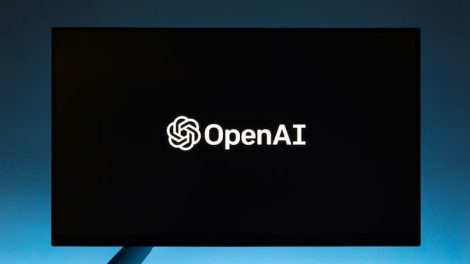NeurIPS, widely regarded as one of the most influential artificial intelligence conferences globally, has long been a beacon for innovation, research, and collaboration in the AI field. Often referred to as the “AI Olympics,” it draws researchers, industry leaders, and policymakers from around the world to showcase cutting-edge advancements and discuss the direction of the field. However, the 2024 edition, held in Canada, unfolded against the backdrop of heightened geopolitical tension between the United States and China, casting a spotlight on how global tech competition is reshaping the dynamics of the conference and the AI industry at large.

The NeurIPS conference has historically been a platform for fostering collaboration and exchange of ideas among some of the brightest minds in artificial intelligence. Researchers present groundbreaking work, companies unveil innovative applications, and policymakers discuss the implications of rapid technological advancement. Yet, the influence of international politics has steadily grown, creating new challenges for participants and organizers alike. This year, those challenges were particularly pronounced, as restrictions on cross-border collaborations, export controls, and concerns over intellectual property theft intensified, reflecting the broader tech competition between the United States and China.
The strained relationship between the U.S. and China has introduced new complexities for international conferences like NeurIPS. Both countries are deeply invested in advancing AI capabilities, viewing the technology as not just a driver of economic growth but also a critical component of national security. This rivalry has led to restrictions that directly impact the ability of researchers and companies to participate freely in global forums. In Canada, these geopolitical undercurrents were palpable, shaping the tone and focus of the discussions.
One of the most significant impacts of the U.S.-China tech competition on NeurIPS is the issue of attendance and participation. In recent years, researchers from China have faced increasing scrutiny when collaborating with U.S. institutions or attending conferences in North America. Visa restrictions, tightened security protocols, and concerns over espionage have made it more challenging for Chinese researchers to engage fully. At the same time, American researchers have expressed apprehension about sharing insights that could potentially benefit Chinese competitors. These barriers not only hinder collaboration but also risk creating an echo chamber, where ideas are shared within national or regional silos rather than on a global scale.
This year’s conference also highlighted the challenges faced by organizers in navigating these geopolitical tensions. NeurIPS prides itself on being an inclusive and open platform, yet ensuring that inclusivity in a politically charged environment requires careful balancing. Organizers must address concerns about intellectual property theft and security without alienating participants or stifling the free exchange of ideas. This delicate balancing act was evident in the way the conference handled sensitive topics, such as the use of AI in military applications and ethical concerns surrounding surveillance technologies.
The growing divide between the U.S. and China in AI research also raises questions about the broader implications for the field. Historically, progress in AI has been driven by collaboration across borders, with researchers building on each other’s work to achieve breakthroughs. The current climate of mistrust threatens to disrupt this collaborative ecosystem, potentially slowing the pace of innovation. Additionally, the fragmentation of AI research into competing national agendas could lead to duplication of effort and inefficiencies, further complicating the path forward.
Canada, as the host nation for NeurIPS 2024, found itself in a unique position. Known for its strong AI research community and a reputation for neutrality, Canada has long been seen as a bridge between competing powers. However, the country is not immune to the pressures of the U.S.-China rivalry. Canadian researchers and institutions often collaborate with both American and Chinese counterparts, making them acutely aware of the challenges posed by this competition. The conference served as a platform for Canadian researchers to advocate for maintaining open lines of communication and collaboration, emphasizing the importance of AI as a global public good.
A significant aspect of the discussions at NeurIPS 2024 revolved around the ethical and regulatory challenges of AI in the context of geopolitical tension. As countries race to develop and deploy AI technologies, concerns about the misuse of these technologies are growing. Surveillance systems, deepfakes, and autonomous weapons are just a few examples of how AI can be weaponized, raising questions about accountability and oversight. The conference provided a forum for exploring potential frameworks for regulating AI, with participants emphasizing the need for international cooperation despite the current political climate.
To provide a clearer understanding of the impact of U.S.-China tech competition on AI research, the following table outlines some key areas of concern and their implications:
| Key Area | Impact on AI Research | Implications |
|---|---|---|
| Cross-border Collaboration | Restricted access to joint research opportunities | Slower innovation, increased duplication of effort, reduced diversity of perspectives |
| Intellectual Property Concerns | Heightened scrutiny over shared research and patents | Limited sharing of cutting-edge advancements, increased focus on national security |
| Talent Mobility | Visa restrictions and reduced international mobility for researchers | Difficulty in recruiting top talent, potential brain drain in certain regions |
| Research Funding | Increased emphasis on national funding for AI projects | Shift towards national priorities, potential reduction in funding for global initiatives |
| Ethical Oversight | Divergent approaches to AI ethics and regulation | Fragmented standards, challenges in addressing global issues such as misuse of AI in surveillance |
Amid these challenges, there were also moments of optimism and unity at NeurIPS 2024. Researchers from various countries highlighted the importance of maintaining dialogue and collaboration, emphasizing that the benefits of AI extend beyond national borders. Discussions on AI’s potential to address global challenges, such as climate change and healthcare disparities, served as a reminder of the technology’s transformative power when used responsibly.
The role of industry in navigating these geopolitical tensions was another prominent theme. Companies such as Google, Microsoft, and Baidu, which operate on a global scale, have a unique perspective on the challenges and opportunities of AI research in a divided world. These companies are often at the forefront of innovation, yet they must also navigate complex regulatory environments and competing national interests. Their insights into balancing commercial interests with ethical considerations provided valuable context for the broader discussions at the conference.
As the conference concluded, it was clear that NeurIPS 2024 had succeeded in sparking meaningful dialogue on some of the most pressing issues facing the AI community. While the challenges posed by the U.S.-China tech competition are significant, they also underscore the importance of forums like NeurIPS in fostering collaboration and addressing shared concerns. The conference served as a reminder that despite geopolitical tensions, the AI community has a shared responsibility to ensure that the technology is developed and deployed in ways that benefit humanity as a whole.
The future of NeurIPS and similar conferences will undoubtedly be shaped by the evolving dynamics of international politics. As the AI field continues to grow and mature, finding ways to bridge divides and promote cooperation will be essential. Whether through new policies, innovative approaches to collaboration, or increased emphasis on ethical considerations, the AI community must rise to the challenge of navigating a complex and rapidly changing world.
NeurIPS 2024 highlighted both the opportunities and challenges of AI research in an era of geopolitical tension. The conference reinforced the importance of global collaboration while acknowledging the realities of competition and mistrust. As the AI community looks to the future, it will need to find ways to balance these competing forces, ensuring that the technology fulfills its potential to improve lives and address global challenges.










Add Comment